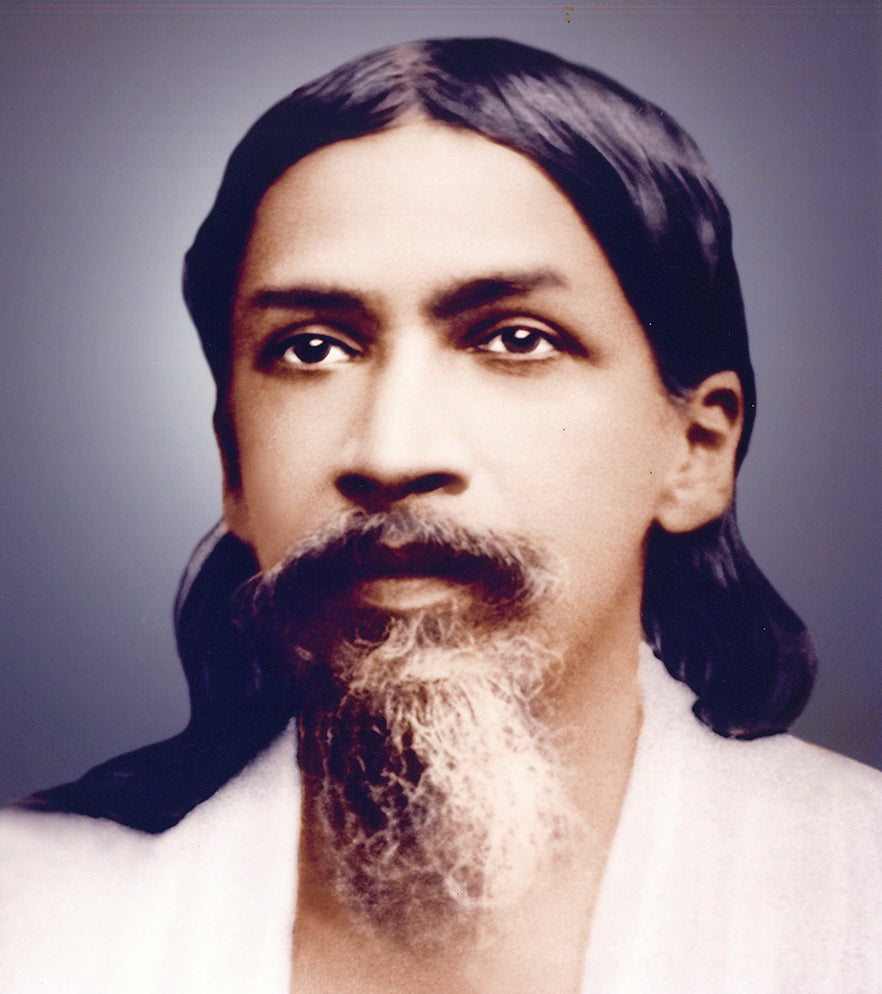Sri Aurobindo

Born in Calcutta, Sri Aurobindo’s early years took him to England, where he received a classical education at St. Paul’s School and King’s College, Cambridge. Returning to India in 1893, he served the princely state of Baroda as a civil servant and professor. But his heart yearned for India’s freedom. By 1906, he had become a leading figure in the Indian nationalist movement, boldly demanding complete independence — a vision he voiced in the revolutionary journal Bande Mataram. His spiritual journey began around the same time, and by 1910, he had withdrawn from politics and moved to Pondicherry to devote himself entirely to the practice of Yoga.
Over the next four decades, Sri Aurobindo developed the Integral Yoga — a path that seeks not just liberation but the divine transformation of human nature itself. In 1926, with the arrival of The Mother as his spiritual collaborator, he founded the Sri Aurobindo Ashram. His profound writings, including The Life Divine, The Synthesis of Yoga, and Savitri, continue to illuminate seekers around the world. He left his physical body on December 5, 1950, but his vision and presence live on.
